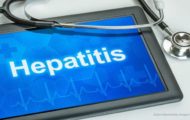The USDA’s Food Safety and Inspection Service (FSIS) gets poor marks when it comes to protecting consumers from Salmonella on chicken and other poultry, according to a new report from the Pew Charitable Trusts. The report, entitled Weaknesses in FSIS’s Salmonella Regulation, uses the two Salmonella outbreaks associated with Foster Farms chicken this year to highlight deficiencies in agency’s efforts to regulate poultry production and says the USDA’s new Salmonella Action Plan does not go far enough to protect consumers.
 “When more than 500 people get sick from two outbreaks associated with chicken that meets federal safety standards, it is clear that those standards are not effectively protecting public health,” said Sandra Eskin, director of Pew’s food safety project. “The Food Safety and Inspection Service should go beyond what it is proposing in its recently released ‘Salmonella Action Plan’ and do more to target salmonella, which is responsible for more hospitalizations and deaths than any other bacterium or virus.”
“When more than 500 people get sick from two outbreaks associated with chicken that meets federal safety standards, it is clear that those standards are not effectively protecting public health,” said Sandra Eskin, director of Pew’s food safety project. “The Food Safety and Inspection Service should go beyond what it is proposing in its recently released ‘Salmonella Action Plan’ and do more to target salmonella, which is responsible for more hospitalizations and deaths than any other bacterium or virus.”
In two separate Salmonella outbreaks this year, Foster Farms chicken sickened at least 550 people. Almost 200 people were hospitalized. Several of the outbreak strains showed resistance to multiple antibiotics.
According to the Centers for Disease Control and Prevention (CDC), Salmonella sickens 1.3 million Americans each year. Of those, about 15,000 are hospitalized and 4,000 die. Salmonella infections can also trigger long-term health problems such as reactive arthritis, inflammation of the heart, spine, tendons and eye membranes. Direct medical costs associated with the treatment of Salmonella infections total about $1 million each day, according to the CDC.
To better combat the public health threat posed by Salmonella, the Pew report suggests FSIS should: change performance standards for poultry producers so they are updated regularly, enforceable, and linked to public health outcomes; consider establishing limits on salmonella contamination for chickens entering the slaughterhouse, conduct unannounced salmonella testing at chicken processing facilities, tell consumers about problems through health alerts as early as possible, close facilities under investigation for failing to produce safe food,. The report also suggest Congress give FSIS the authority to mandate reecalls.
Although epidemiological evidence linked Foster Farms to both outbreaks this year, the company never issued a recall. In the current outbreak, which has sickened 416 people in 23 states, FSIS inspectors found food safety violations at three Foster Farms plants that produced the chicken linked to illnesses. The violations included: fecal material on carcasses, poor sanitary dressing practices, insanitary food contact surfaces, insanitary non food contact surfaces and “direct product contamination.” Despite these findings, the plants were allowed to remain open. The outbreak is ongoing.





Does no one wash their store bought chicken? And are they eating it raw? I was under the impression that cooking food destroyed salmonella? I am really tired of the government protecting me where common sense would do.
Never ever wash store bought chicken. That just spreads bacteria around the chicken. The bacteria actually becomes airborne three feet away from the faucet. Which means you’ll get bacteria all over your face. And secondly, this has NOTHING to do with “common sense”. Corporations have no business selling contaminated food to consumers. Thousands of bacteria fit on the head of a pin. NO ONE can handle these dangerous foods with complete safety.
Maybe people should stop eating chicken.
Oh for pete’s sake. You really side with corporations that sell you contaminated chicken over the government trying to protect you?? It’s illegal for these huge companies to sell people food that has enough bacteria to make someone sick.